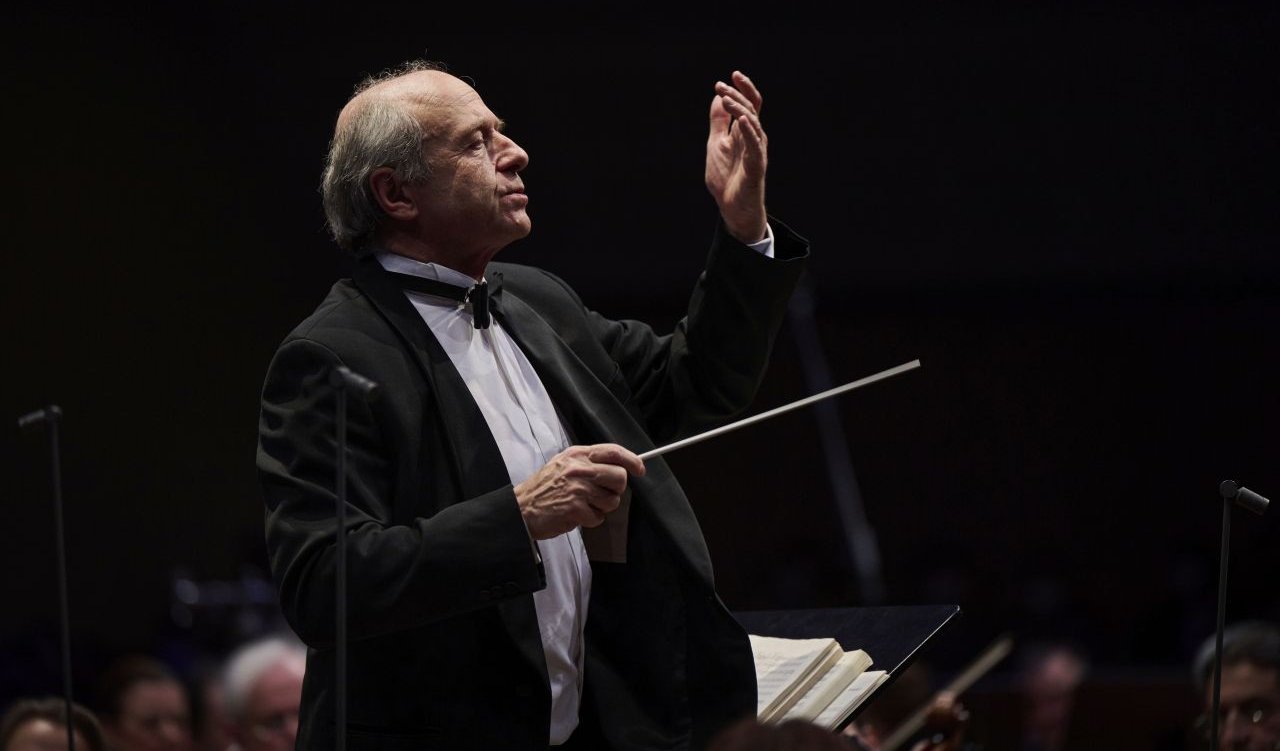


Tour: Eisler, Hindemith, Schulhoff, Weill
Rysanov, N. Fischer, Fischer
Program
Hanns Eisler:
Suite No. 2, Op. 24 – from the movie “Niemandsland”
Paul Hindemith (→ bio):
Der Schwanendreher (The Swan Turner) – concerto for viola and orchestra
INTERVAL
Erwin Schulhoff:
Suite for Chamber Orchestra, Op. 37, WV 58
Kurt Weill:
Die Seeräuber Jenny – from The Threepenny Opera
Bilbao song – from the musical Happy End
Suite panaméenne (Panamanian Suite)
Ballade vom ertrunkenen Mädchen – from The Berlin Requiem
Was die Herren Matrosen sagen – from the musical Happy End
Featuring
Other information
The event is about 3.0 hours long.
About the event
Entartete Musik – Musica degenerata. Once again, Iván Fischer and the Budapest Festival Orchestra explore a difficult but important topic through their program: the pieces are a selection of works declared decadent, of composers repressed, or whose artistic activity was made impossible, during the Third Reich. The concert will feature music by movie score composer Hanns Eisler, who eventually emigrated to America from Hitler’s Germany, Paul Hindemith, who became a persona non grata partly due to his Jewish wife and partly because of his dissonant pieces, Erwin Schulhoff, who died in a concentration camp and Kurt Weill, who also came from a Jewish family. The viola concerto will be performed by violist and conductor Maxim Rysanov, who at the age of 30 was selected Gramophone’s Young Artist of the Year, while Nora Fischer, described as compelling by reviewers in the New York Times, the Guardian and BBC Music Magazine, will sing the songs.
Viktor Trivas’s allegoric anti-war film from 1931, entitled No Man’s Land, is about five people of different nationalities meeting by happenstance, being stuck together and cooperating at the outbreak of the First World War. Eisler composed a four-movement suite from his own movie score. The Prelude is followed by a Capriccio based on Jewish melodies and, after the Andante, the piece is concluded by a March.
The three movements of Der Schwanendreher by virtuoso violist Hindemith are each based on an old German folk song, juxtaposing the values of the past with the current hostilities at the time. The title refers on the one hand to a swan-turning cook’s assistant, and, on the other, to a wandering minstrel. The orchestral parts of the neo-classicist composition are made special by the lack of violins and violas.
Suite in the New Style – this was the original title of Schulhoff’s jazz suite for orchestra composed in 1921. The jazz pianist, who started his career as a Wunderkind, introduces his six-movement piece with a nonsense poem. The opening Ragtime can be interpreted as a parody, Valse Boston is also called the hesitant waltz, Tango is less sensual than usual, Shimmy was named after the chemise of American singer-actress Gilda Grey, which became visible when she danced, Step is a piece of all-percussion music of less than a minute and Jazz is the syncopated finale of the composition.
The concert will be concluded with popular songs by Kurt Weill. First up will be one of the most famous songs, based on François Villon’s text, of the 1928 The Threepenny Opera. which was banned by the Nazis, in which Jenny, a maid, is plotting a revenge fantasy with pirates.
A year after the sweeping success of the play, Weill was commissioned for a similar work. Although Happy End failed, the Bilbao Song, the celebration of gang members at the beginning of the play, soon became a cabaret standard. The murky past of the play’s protagonist, Salvation Army lieutenant Lilian Holiday, will be disclosed in The Sailor’s Tango at the end of the program.
Panamanian Suite, composed in 1934 for Jacques Deval’s novel, Marie Galante, also includes tangos, as well as a march and a foxtrot. The dance movements will be counterbalanced by an excerpt with an intimate accompaniment of the 1928 Berlin Requiem paying tribute to the forgotten dead, the victims of wars and crimes.